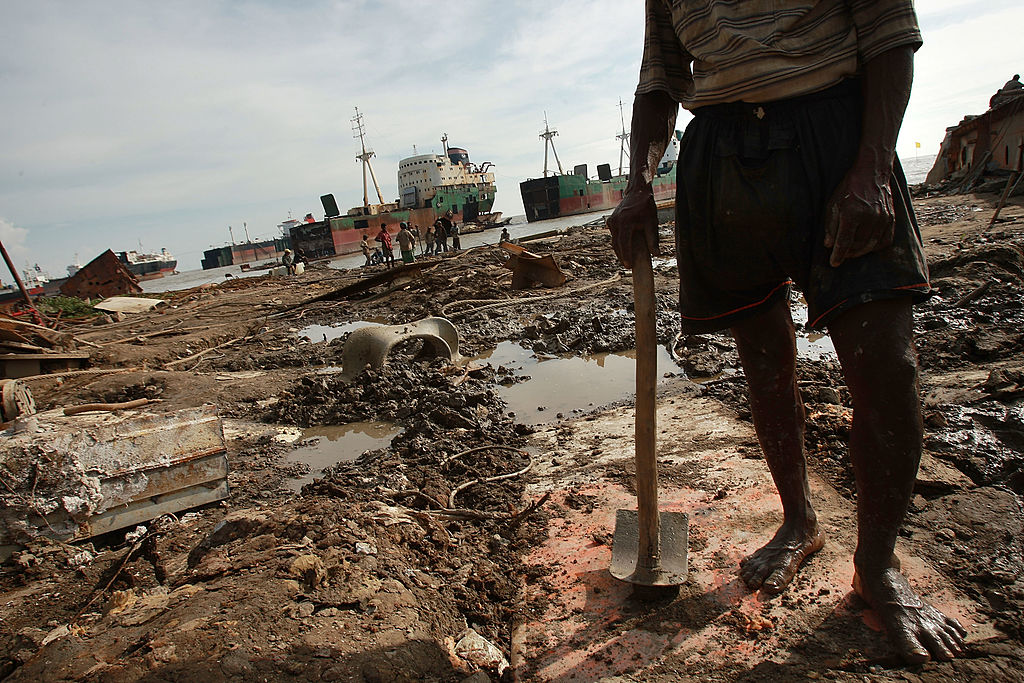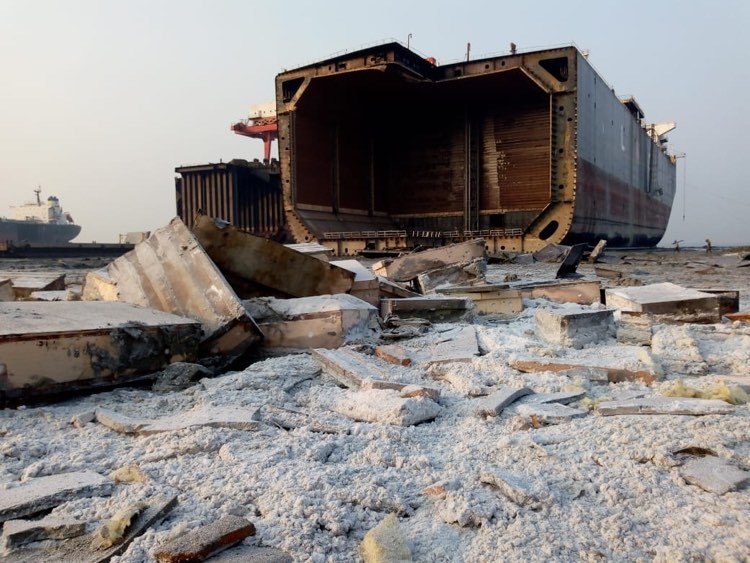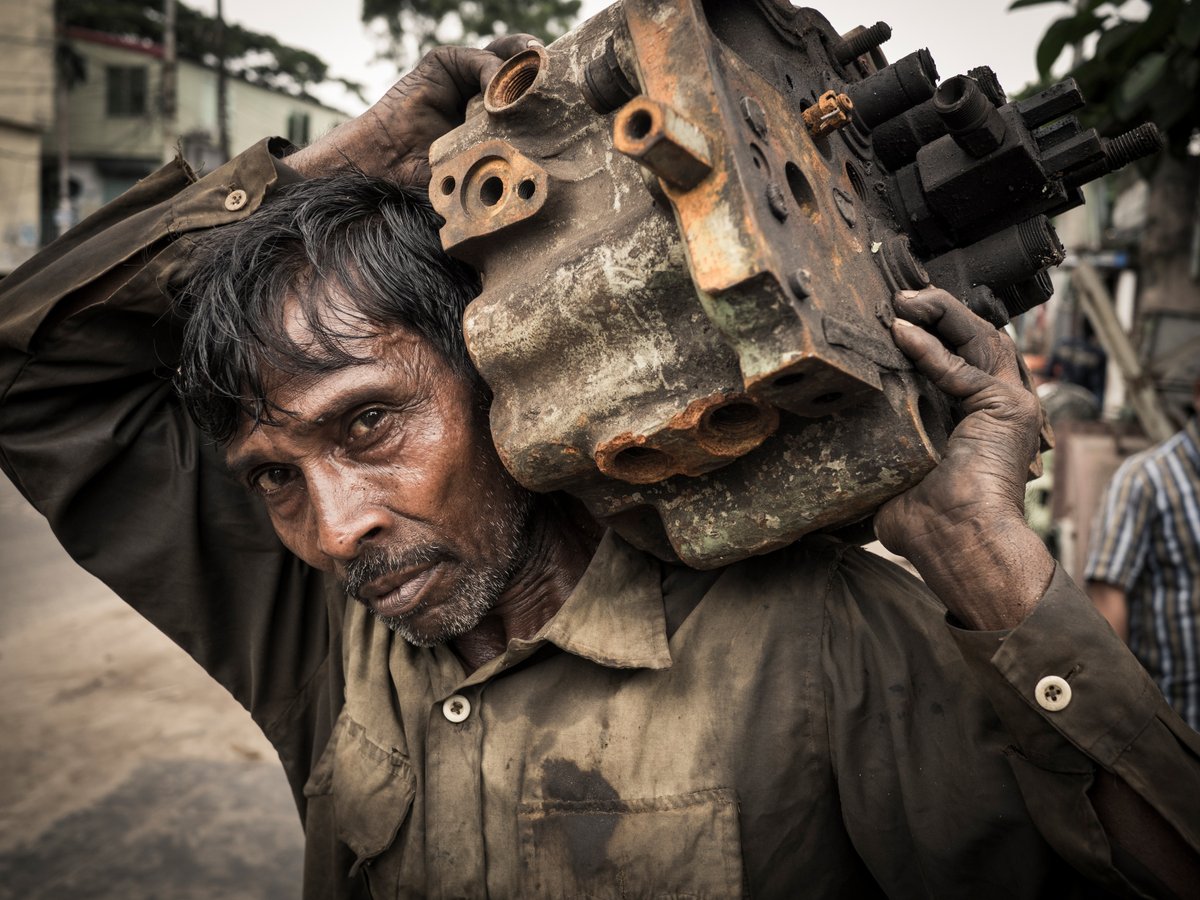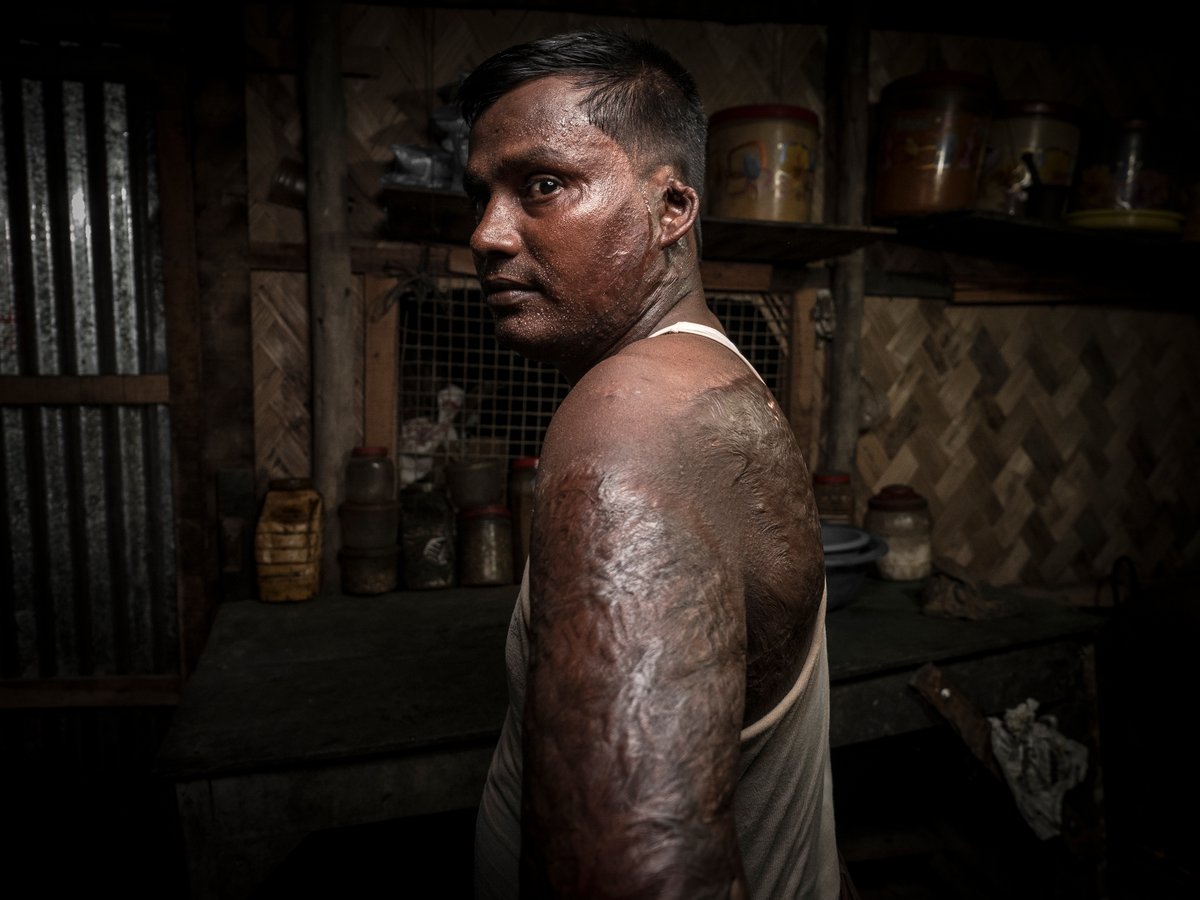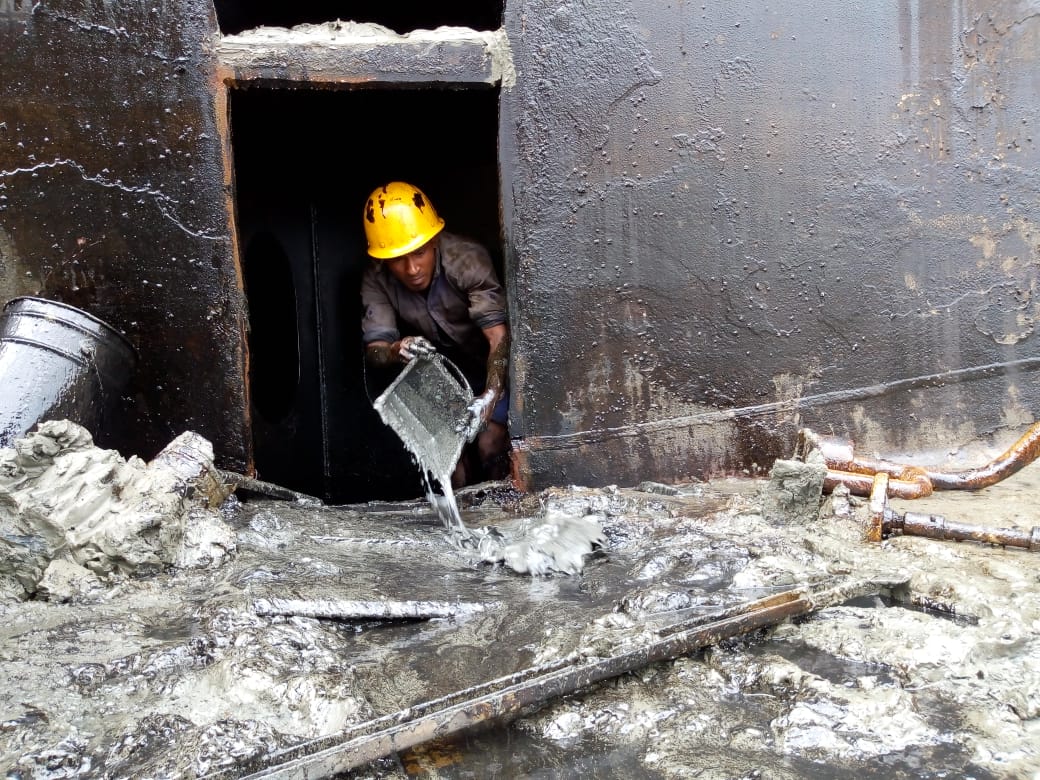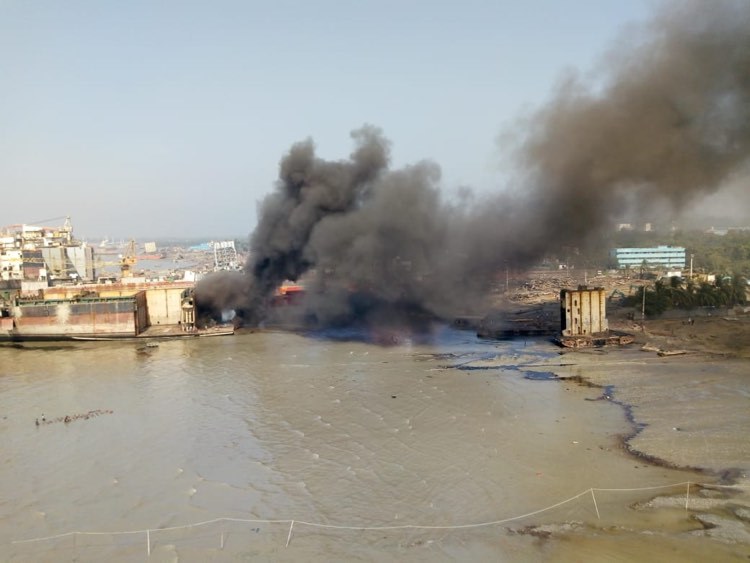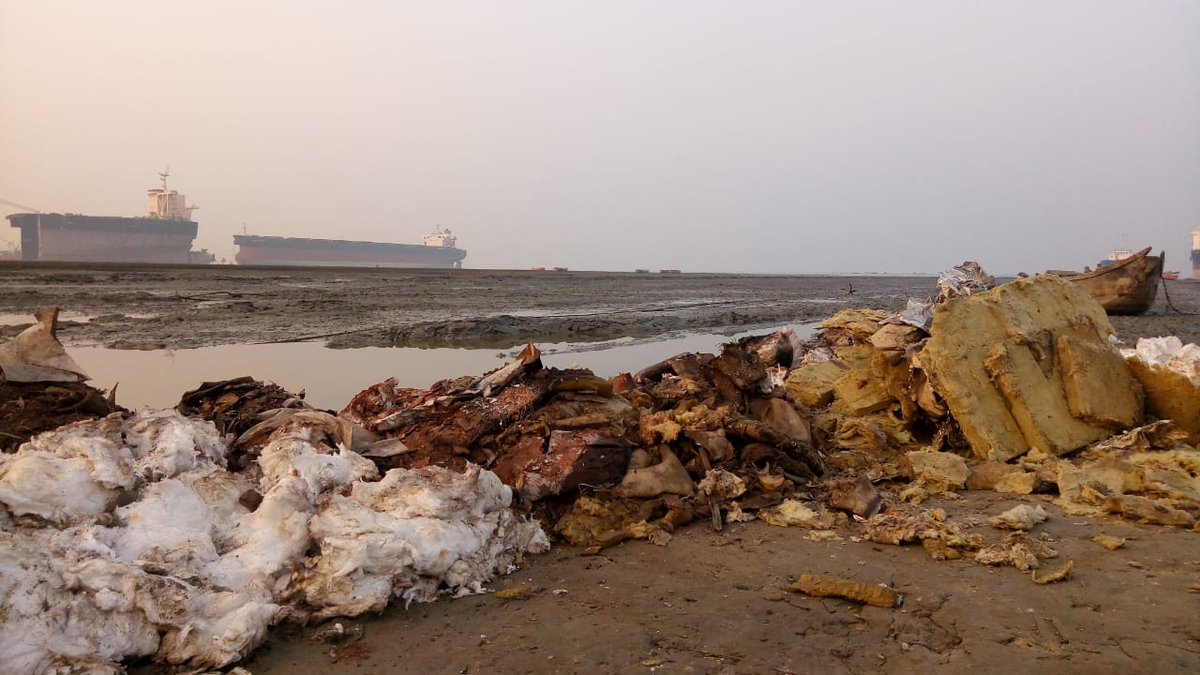THREAD: #Shipbreaking in Bangladesh. Wealthy western companies maximise profits while abusing the right to life of impoverished workers, dumping toxic hazardous 1/16
Shipbreaking is ranked by the ILO as among the most dangerous jobs in the world. This industry enriches shipping companies at the expense of S. Asian workers' lives & the environment #corporateaccountability 2/16
Shipbreaking is the process by which an end-of-life vessel is broken up for scrap. More than 70% of the approximately 800 vessels reaching the end of their operating lives annually are broken up using the “beaching” method in South Asia 3/16
Workers are often exploited migrants, paid extremely low wages, given little or no protective equipment or training, who lose their lives and suffer injuries and occupational diseases due to unsafe working conditions and exposure to toxic substances 4/16
Beaching causes severe damage to coastal ecosystems and local communities due to toxic spills, contamination and other types of pollution. Substances such as #asbestos are routinely found aboard ships 5/16
#Chattogram has been described as the world’s cheapest place to scrap ships, returning greater profits to multinational shipping companies. But the cost to human life and the environment is devastating 6/16
Its #shipbreaking yards are notorious for their atrocious working conditions, the prevalence of #childlabour, and the appallingly high injury and death rates among workers. Ships are often broken up by workers with little more than a blow torch 7/16
Khalil Mollah, was one of these workers at a Chattogram yard. Tragically he lost his life after falling 8 stories from a ship he was breaking. Mollah had no safety equipment, training and no systems were in place to prevent such a fall https://www.leighday.co.uk/News/Press-releases-2020/July-2020/Widow-of-shipbreaking-worker-free-to-pursue-neglig 8/16
Judgment handed down on 13 July, an English High Court judge refused to strike out a negligence claim brought by Mr Mollah's widow, Hamida Begum, against Maran (UK) Ltd, who sold the ship for demolition knowing it would end up on Chattogram beaches 9/16 https://www.bailii.org/ew/cases/EWHC/QB/2020/1846.html
The claimant argues that Maran (UK) could have ensured the ship was recycled in an ethical way for a lower sale price. Given the dangers of #shipbreaking in Chattogram, they should be liable to compensate workers who suffer injury or death as a result 10/16
The Court held that Maran (UK) Ltd arguably owed a duty of care to Mr Mollah. The decision is likely to send shockwaves around the shipping industry which historically has sent thousands of vessels to South Asian beaches for great profit https://www.leighday.co.uk/News/Press-releases-2020/July-2020/Widow-of-shipbreaking-worker-free-to-pursue-neglig 11/16
The Court’s finding is in line with the movement towards safer environmental and health & safety practices across the maritime sector, stronger regulation of the sector, and the law on liability for companies with operations in other jurisdictions 12/16
The shipping industry is known for being deliberately opaque and for structuring itself in a way to avoid liability. This case could mean that the company and contractual structures come under pressure or scrutiny when it comes to end of life vessels 13/16
Reports suggest the world’s largest containership ever sent for demolition was sent for green #recycling in Turkey, to comply with EU recycling rules. The ship's price is expected to have been far lower than would have been obtained in S. Asia 14/16 https://www.maritimebusinessworld.com/maersk-sells-containership-for-green-recycling-in-turkey-1499h.htm
There has been a campaign for many years to stop the dangerous, life-threatening practices of shipbreaking on South Asian beaches, led by @NGOShipbreaking Platform https://www.shipbreakingplatform.org/ 15/16
We hope the @leighdayintl case against Maran (UK) leads to ship owners meeting international standards for #shiprecycling, sending their ships to ethical yards, and investment in South Asia to improve work practices, health & safety and environmental impacts 16/16

 Read on Twitter
Read on Twitter